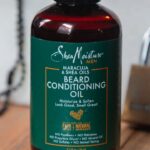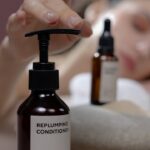Understanding Your Hair’s Needs
Healthy hair doesn’t happen by chance; it’s the result of attentive care and a tailored routine. Dermatologists emphasize the importance of recognizing your hair type and concerns as the starting point of any care regimen. Just like a fingerprint, your hair is unique, and its needs are just as individualized.
Hair Analysis: The Foundation of Care
Before diving into products and practices, it’s crucial to understand your hair’s characteristics. Factors like texture, density, porosity, and scalp condition play a significant role in determining the ideal care routine. For instance, fine hair may require lightweight formulations to prevent limpness, while coarse hair might need richer, more emollient products.
Scalp Health: The Root of Vitality
A healthy scalp equals healthy hair growth. Dermatologists stress the importance of scalp care, noting that issues like dandruff, psoriasis, or dermatitis can significantly impact hair quality. Routine scalp massages, proper cleansing, and avoiding excessive heat are recommended to maintain a healthy scalp environment.
Cleansing: Purity Without Stripping
Choosing the right shampoo is paramount. A dermatologist’s input often leads to sulfate-free, pH-balanced options that clean without over-stripping natural oils. Shampoos with targeted ingredients for specific concerns, like tea tree oil for oil control or ketoconazole for dandruff, are also commonly recommended.
Conditioning: The Balancing Act
Conditioners and hair masks restore moisture and elasticity to your hair. For those with damage or dryness, ingredients like ceramides and amino acids are often suggested. A regular conditioning routine keeps the hair shaft sealed and protected from environmental stresses.
Deep Treatments: Intensive Repair
Hair, much like skin, occasionally requires deep treatment. Dermatologists may propose protein treatments for brittle hair or hydrating masks for parched locks. These intense sessions can revitalize the hair from the inside out, repairing damage and strengthening the strands.
Styling: Minimizing Damage
While styling is often a daily ritual, it can lead to cumulative damage. Heat protectants, gentle styling tools, and techniques that minimize stress on the hair fiber are all dermatologist-approved strategies. Regular trims to remove split ends and careful detangling are also part of a hair-friendly styling routine.
Protection: Defending Against the Elements
Your hair is exposed to the sun, pollution, and other environmental factors that can degrade its quality. Dermatologists advocate for the use of hats, scarves, and UV-protective sprays to shield the hair. Additionally, avoiding chlorinated water or using filters can prevent mineral buildup and discoloration.
Nutrition: Feeding Your Hair from Within
Dermatologists know that hair health starts with good nutrition. A diet rich in proteins, omega-3 fatty acids, and vitamins like biotin and niacin supports the hair growth cycle. In some cases, supplements may be recommended to address deficiencies that impact hair quality.
Customization: The Personal Touch
Finally, customization is the touchstone of a successful hair care routine. A dermatologist can help tailor a regimen to your lifestyle, preferences, and specific hair issues, ensuring that the care you provide is as unique as you are.
A Lifelong Journey
In conclusion, a dermatologist-recommended hair care routine is a dynamic and personalized approach. It’s about making informed choices, understanding the science behind hair health, and committing to a consistent regimen. With professional guidance and a dedication to your hair’s well-being, you can achieve the lustrous, healthy hair that is a testament to your overall health.







